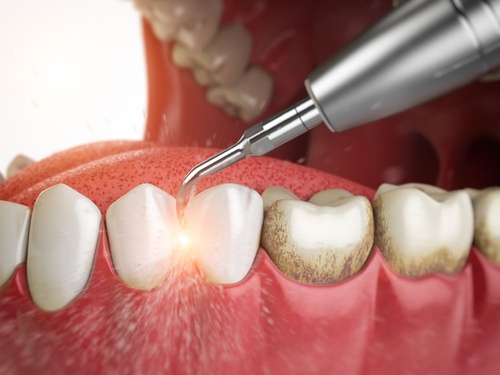Dental cleanings, also known as prophylaxis or simply "cleanings," are one of the most important preventive measures you can take to maintain good oral health. Cleanings are usually performed by dental hygienists or dental assistants, and they involve removing plaque and tartar buildup from your teeth and gums. But how long are dentist cleanings, and why are they so important?
In this post, we'll explore how long are dentist cleanings and their importance in detail.
How Long are Dental Cleanings?
The length of a dental cleaning can vary depending on several factors, including the patient's oral health status, the amount of buildup present on their teeth and gums, and the thoroughness of the cleaning. However, most dental cleanings typically last between 30 minutes to an hour.
During a routine dental cleaning, the dental hygienist will use a variety of tools to remove plaque and tartar from your teeth and gum line. This may include a scaler, which is a small metal instrument used to scrape away hardened plaque, as well as a high-powered water jet to flush out debris and bacteria. The hygienist may also polish your teeth to remove any surface stains and apply a fluoride treatment to help strengthen your tooth enamel.
Why are Dental Cleanings Important?
Regular dental cleanings are crucial for maintaining good oral health, as they help to prevent tooth decay, gum disease, and other oral health issues.
Here are just a few reasons why dental cleanings are so important:
Remove Plaque and Tartar Buildup
Even if you brush and floss your teeth regularly, it's still possible for plaque and tartar to accumulate on your teeth and gum line. Over time, this buildup can lead to tooth decay and gum disease, which can cause serious damage to your oral health. Dental cleanings help to remove this buildup before it can cause any long-term problems.
Prevent Tooth Decay
When plaque and tartar accumulate on your teeth, they can cause cavities and decay. Regular dental cleanings can help to prevent this by removing the harmful bacteria that cause decay.
Prevent Gum Disease
Gum disease is a common oral health issue that occurs when the gums become inflamed and infected. Left untreated, gum disease can lead to tooth loss and other serious health problems. Dental cleanings can help to prevent gum disease by removing the bacteria and plaque that can cause inflammation.
Save Money in the Long Run
By preventing oral health problems before they occur, dental cleanings can actually save you money in the long run. Treating advanced dental problems can be expensive, so it's much more cost-effective to invest in preventive care.
The Bottom Line
Dental cleanings are an essential part of maintaining good oral health. By removing plaque and tartar buildup, preventing tooth decay and gum disease, and saving you money in the long run, regular dental cleanings are a wise investment in your overall health and well-being. So if it's been a while since your last cleaning, be sure to schedule an appointment with your dentist or dental hygienist today!


No comments yet